23+ APA Table Examples to Download
Tables are an essential element in academic writing, particularly when it comes to presenting complex data in a clear and organized manner. In the realm of academic research, the American Psychological Association (APA) style is widely used for its precise guidelines in formatting scholarly papers. One crucial aspect of adhering to APA style paper is understanding how to create and format tables effectively. This article aims to provide a comprehensive guide on APA tables, covering their definition, formatting guidelines, frequently asked questions, and their significance in presenting research findings.
1. APA Formatting Table
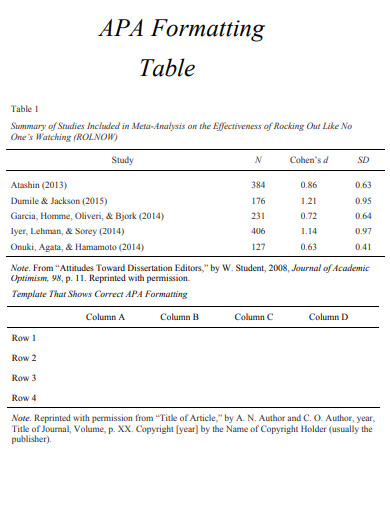
wmich.edu
2. APA Table Examples
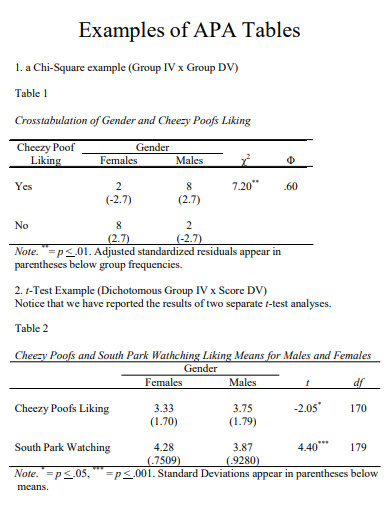
newprairiepress.org
3. Elements of APA Table
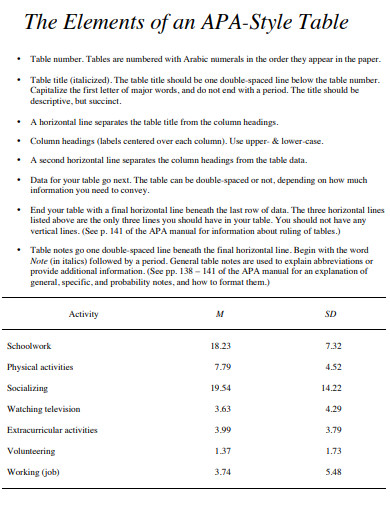
academics.hamilton.edu
4. APA Table Checklist
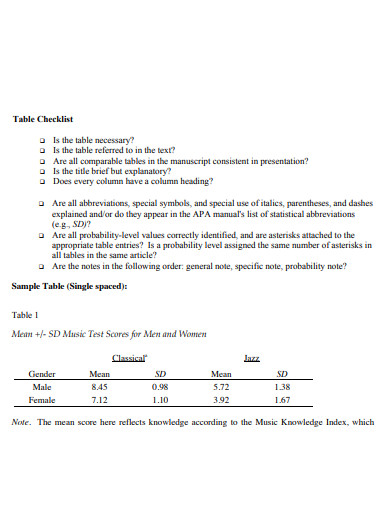
psych.uw.edu
5. APA Table Format
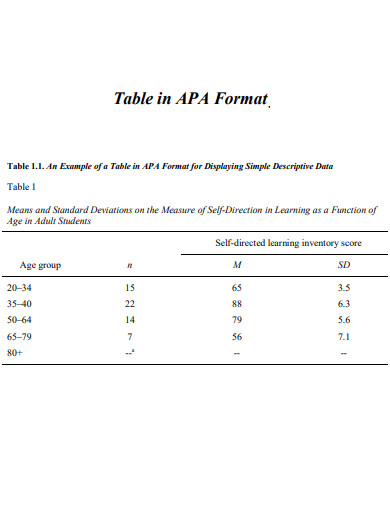
web.cortland.edu
6. APA Table Anatomy
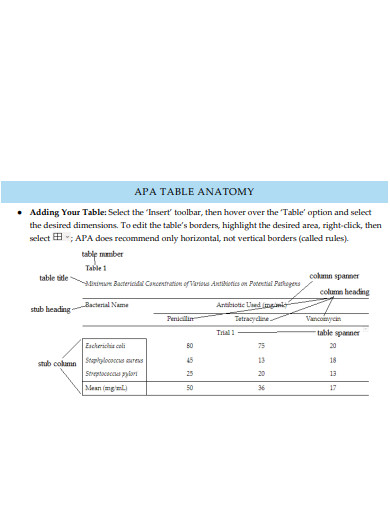
regent.edu
7. APA Using Tables And Figures
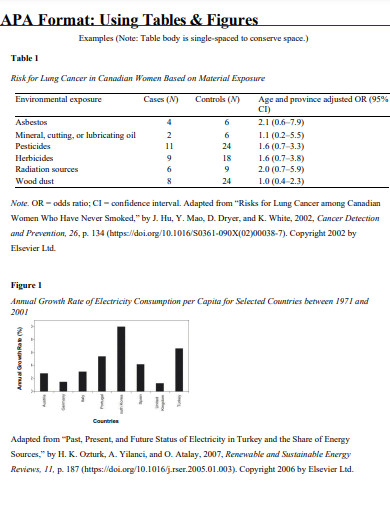
svsu.edu
8. APA Tables Guide

eit.ac.nz
9. Advanced APA Paper Tables

mtmercy.edu
10. APA Referencing Tables
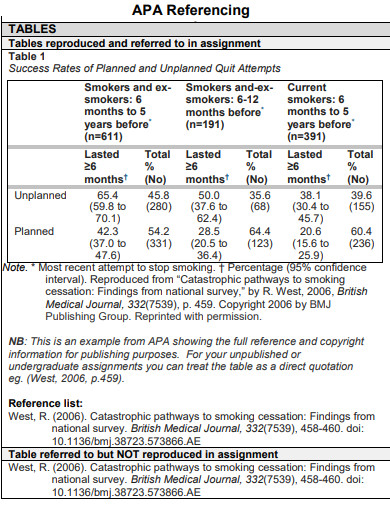
core.windows.net
11. Standard APA Style Tables
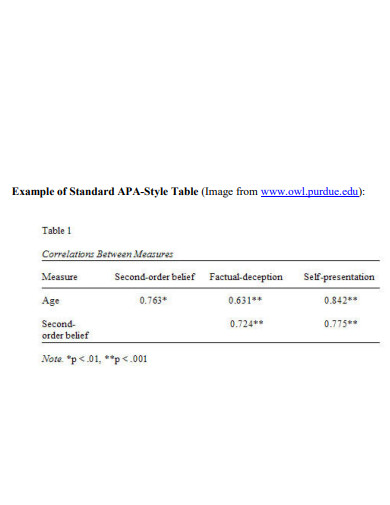
coloradocollege.edu
12. Sample APA Tables
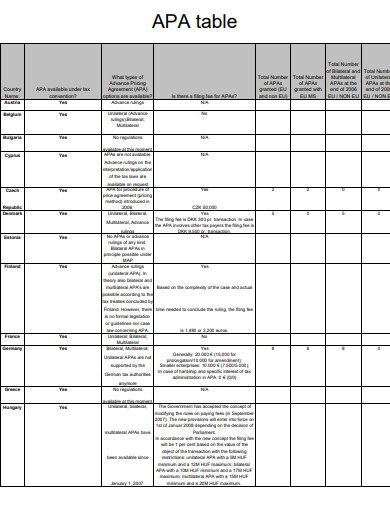
taxation-customs.ec.europa.eu
13. Multiple Regression APA Tables
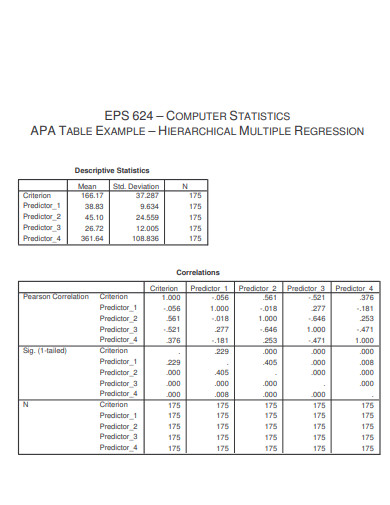
oak.ucc.nau.edu
14. Simple APA Tables
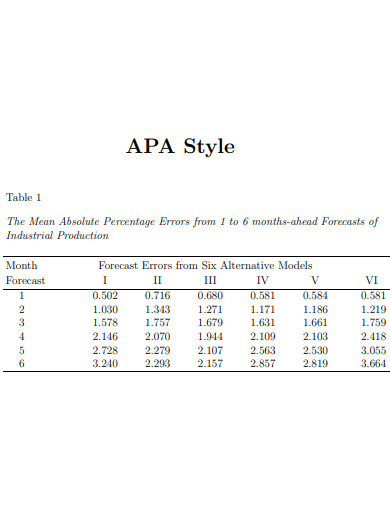
utoledo.edu
15. APA 7th Edition Table
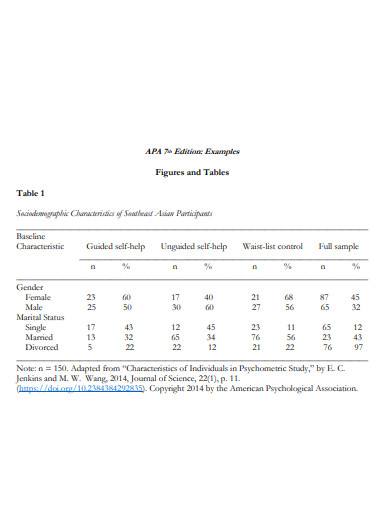
wijar.westcliff.edu
16. APA Style Citation Table
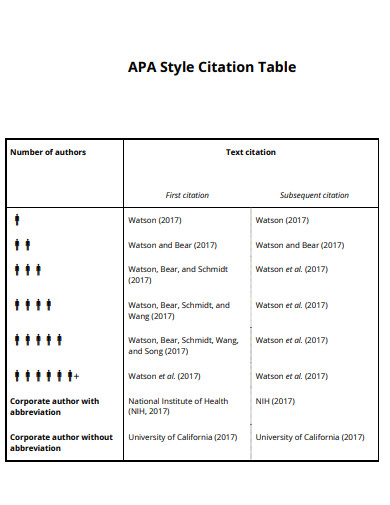
ediqo.com
17. APA Descriptive Statistics Table
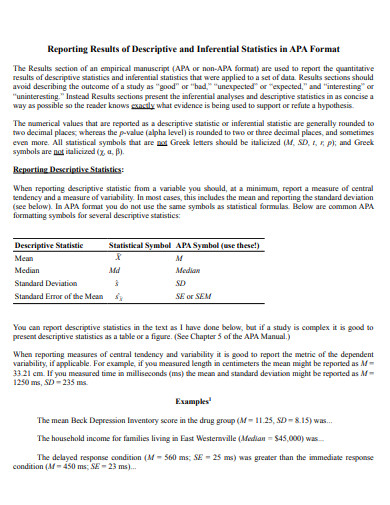
bryanburnham.net
18. APA Correlation Table
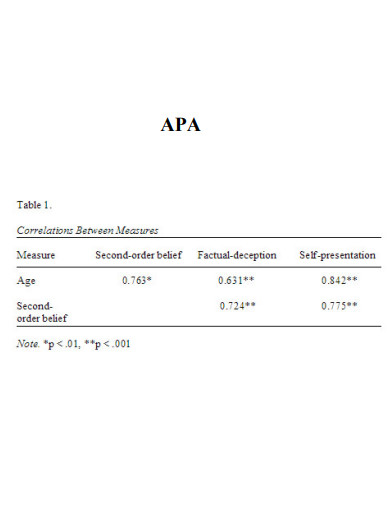
ich.vscht.cz
19. APA Stepwise Regression Table
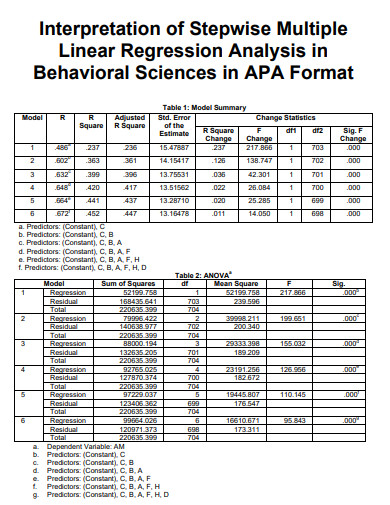
socialresearchfoundation.com
20. APA Regression Analysis Table
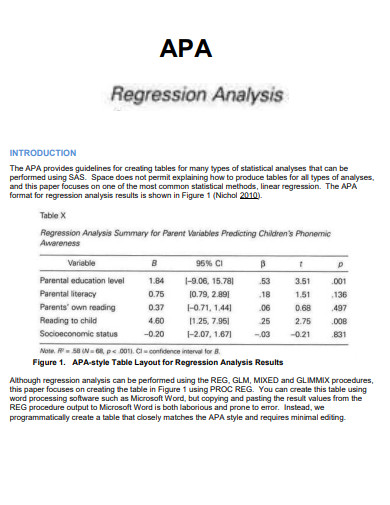
support.sas.com
21. APA Pearson Correlation Table
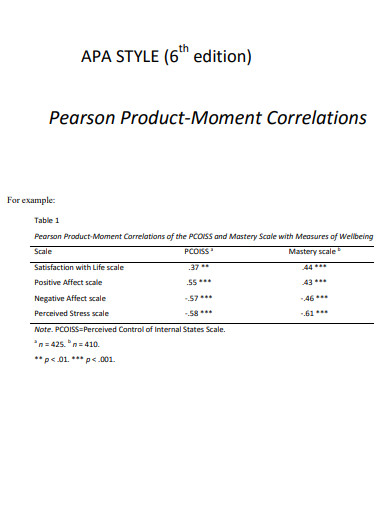
spss.allenandunwin.com
22. APA Logistic Regression Table
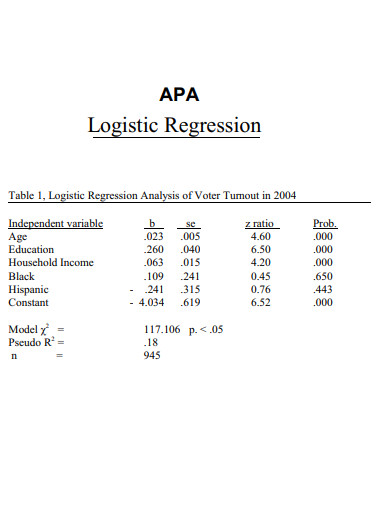
content.csbs.utah.edu
23. APA Table Note
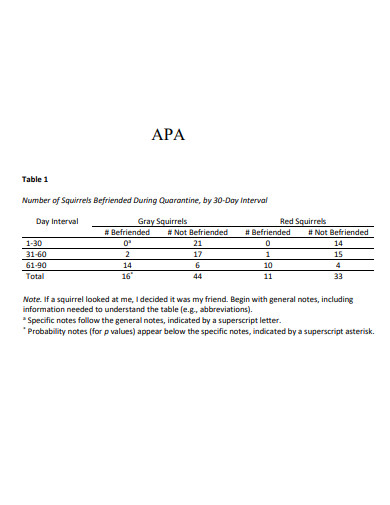
ssw.unc.edu
24. APA Paper Table
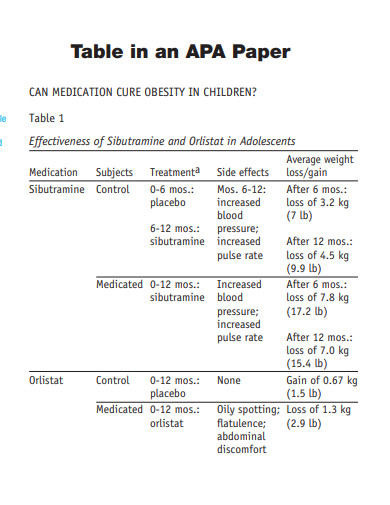
macmillanhighered.com
What is APA Table?
An APA table is a visual representation of data used in scholarly research papers, dissertations, and other academic works. Tables in APA format provide a concise and organized display of numerical and textual information, allowing readers to grasp complex information at a glance. These tables play a vital role in supporting the findings, analysis, and interpretations presented in the accompanying text. Understanding the guidelines for constructing APA tables ensures that information is conveyed accurately and effectively while maintaining consistency and professionalism throughout the document.
How to Format Your Table in APA
Formatting your table in accordance with APA guidelines is essential for presenting data accurately and effectively in academic writing. In this concise guide, we will walk you through the step-by-step process of formatting your table in APA style. By following these guidelines, you will learn how to create tables that enhance the clarity, organization and visual impact of your research findings, ensuring your work meets the highest standards of scholarly presentation. Let’s dive in and discover how to format your table in APA style, maximizing its potential as a valuable tool in conveying information.
Step 1: Introduction
Formatting tables in APA style involves adhering to specific guidelines to ensure consistency and clarity. By following these steps, you can create tables that effectively communicate your research findings.
Step 2: Label the Table:
Begin by providing a clear and concise table title, written in title case, above the table. The table number should be placed to the left of the title, followed by a brief but descriptive explanation of the table’s contents.
Step 3: Structure the Table:
Create a grid-like structure with horizontal lines separating the table headings and the body of the table. Vertical lines are not used in APA tables unless required by the specific data being presented.
Step 4: Headings and Subheadings:
Clearly label each column with a brief APA heading in bold, title case, and align them to the left. If necessary, use subheadings within the table to further categorize the data, ensuring clarity and ease of understanding.
Step 5: Formatting the Data:
Use consistent formatting for the data within the table. Align numeric data to the right, while aligning text or qualitative information to the left. Use clear and concise units of measurement (check out chart examples here), and ensure decimal points are aligned vertically for easy comparison.
Step 6: Notes and Sources:
Include any necessary explanatory notes below the table, using superscript lowercase letters (check out letter formats) to match with corresponding notes. If you are referencing another source for the table, provide the appropriate citation below the table, following APA guidelines.
FAQs
Can I use color in my APA tables?
While APA discourages the use of color in tables to ensure accessibility, you can still use color sparingly for specific purposes, such as highlighting certain data points or patterns. However, ensure that the information is still discernible when printed in black and white.
Should I include a table of contents for my APA research paper?
APA style does not require a table of contents for research papers unless specifically requested by your instructor or publisher. However, for longer papers or dissertations, a table of contents can provide a helpful roadmap for readers to navigate through your work.
Is APA table formatting different from the Chicago format?
Yes, APA and Chicago formats have distinct guidelines for table formatting. While both styles prioritize clarity and organization, the specific rules for headings, structure, and citation differ between the two styles. It is essential to consult the appropriate style guide when formatting tables.
APA tables serve a crucial function in presenting data and supporting research findings within academic papers. By adhering to the guidelines outlined in this article, you can create well-structured tables that enhance the overall clarity and effectiveness of your scholarly work. Mastering the art of formatting APA tables empowers researchers to effectively communicate their findings while maintaining the highest standards of academic integrity and professionalism.
23+ APA Table Examples to Download

Tables are an essential element in academic writing, particularly when it comes to presenting complex data in a clear and organized manner. In the realm of academic research, the American Psychological Association (APA) style is widely used for its precise guidelines in formatting scholarly papers. One crucial aspect of adhering to APA style paper is understanding how to create and format tables effectively. This article aims to provide a comprehensive guide on APA tables, covering their definition, formatting guidelines, frequently asked questions, and their significance in presenting research findings.
1. APA Formatting Table

wmich.edu
Details
File Format
PDF
Size: 179 KB
2. APA Table Examples

newprairiepress.org
Details
File Format
PDF
Size: 636 KB
3. Elements of APA Table

academics.hamilton.edu
Details
File Format
PDF
Size: 130 KB
4. APA Table Checklist

psych.uw.edu
Details
File Format
PDF
Size: 160 KB
5. APA Table Format

web.cortland.edu
Details
File Format
PDF
Size: 464 KB
6. APA Table Anatomy

regent.edu
Details
File Format
PDF
Size: 174 KB
7. APA Using Tables And Figures

svsu.edu
Details
File Format
PDF
Size: 115 KB
8. APA Tables Guide

eit.ac.nz
Details
File Format
PDF
Size: 2 MB
9. Advanced APA Paper Tables

mtmercy.edu
Details
File Format
PDF
Size: 108 KB
10. APA Referencing Tables

core.windows.net
Details
File Format
PDF
Size: 346 KB
11. Standard APA Style Tables

coloradocollege.edu
Details
File Format
PDF
Size: 238 KB
12. Sample APA Tables

taxation-customs.ec.europa.eu
Details
File Format
PDF
Size: 10 KB
13. Multiple Regression APA Tables

oak.ucc.nau.edu
Details
File Format
PDF
Size: 30 KB
14. Simple APA Tables

utoledo.edu
Details
File Format
PDF
Size: 80 KB
15. APA 7th Edition Table

wijar.westcliff.edu
Details
File Format
PDF
Size: 168 KB
16. APA Style Citation Table

ediqo.com
Details
File Format
PDF
Size: 510 KB
17. APA Descriptive Statistics Table

bryanburnham.net
Details
File Format
PDF
Size: 91 KB
18. APA Correlation Table

ich.vscht.cz
Details
File Format
PDF
Size: 124 KB
19. APA Stepwise Regression Table

socialresearchfoundation.com
Details
File Format
PDF
Size: 215 KB
20. APA Regression Analysis Table

support.sas.com
Details
File Format
PDF
Size: 435 KB
21. APA Pearson Correlation Table

spss.allenandunwin.com
Details
File Format
PDF
Size: 962 KB
22. APA Logistic Regression Table

content.csbs.utah.edu
Details
File Format
PDF
Size: 22 KB
23. APA Table Note

ssw.unc.edu
Details
File Format
PDF
Size: 439 KB
24. APA Paper Table

macmillanhighered.com
Details
File Format
PDF
Size: 411 KB
What is APA Table?
An APA table is a visual representation of data used in scholarly research papers, dissertations, and other academic works. Tables in APA format provide a concise and organized display of numerical and textual information, allowing readers to grasp complex information at a glance. These tables play a vital role in supporting the findings, analysis, and interpretations presented in the accompanying text. Understanding the guidelines for constructing APA tables ensures that information is conveyed accurately and effectively while maintaining consistency and professionalism throughout the document.
How to Format Your Table in APA
Formatting your table in accordance with APA guidelines is essential for presenting data accurately and effectively in academic writing. In this concise guide, we will walk you through the step-by-step process of formatting your table in APA style. By following these guidelines, you will learn how to create tables that enhance the clarity, organization and visual impact of your research findings, ensuring your work meets the highest standards of scholarly presentation. Let’s dive in and discover how to format your table in APA style, maximizing its potential as a valuable tool in conveying information.
Step 1: Introduction
Formatting tables in APA style involves adhering to specific guidelines to ensure consistency and clarity. By following these steps, you can create tables that effectively communicate your research findings.
Step 2: Label the Table:
Begin by providing a clear and concise table title, written in title case, above the table. The table number should be placed to the left of the title, followed by a brief but descriptive explanation of the table’s contents.
Step 3: Structure the Table:
Create a grid-like structure with horizontal lines separating the table headings and the body of the table. Vertical lines are not used in APA tables unless required by the specific data being presented.
Step 4: Headings and Subheadings:
Clearly label each column with a brief APA heading in bold, title case, and align them to the left. If necessary, use subheadings within the table to further categorize the data, ensuring clarity and ease of understanding.
Step 5: Formatting the Data:
Use consistent formatting for the data within the table. Align numeric data to the right, while aligning text or qualitative information to the left. Use clear and concise units of measurement (check out chart examples here), and ensure decimal points are aligned vertically for easy comparison.
Step 6: Notes and Sources:
Include any necessary explanatory notes below the table, using superscript lowercase letters (check out letter formats) to match with corresponding notes. If you are referencing another source for the table, provide the appropriate citation below the table, following APA guidelines.
FAQs
Can I use color in my APA tables?
While APA discourages the use of color in tables to ensure accessibility, you can still use color sparingly for specific purposes, such as highlighting certain data points or patterns. However, ensure that the information is still discernible when printed in black and white.
Should I include a table of contents for my APA research paper?
APA style does not require a table of contents for research papers unless specifically requested by your instructor or publisher. However, for longer papers or dissertations, a table of contents can provide a helpful roadmap for readers to navigate through your work.
Is APA table formatting different from the Chicago format?
Yes, APA and Chicago formats have distinct guidelines for table formatting. While both styles prioritize clarity and organization, the specific rules for headings, structure, and citation differ between the two styles. It is essential to consult the appropriate style guide when formatting tables.
APA tables serve a crucial function in presenting data and supporting research findings within academic papers. By adhering to the guidelines outlined in this article, you can create well-structured tables that enhance the overall clarity and effectiveness of your scholarly work. Mastering the art of formatting APA tables empowers researchers to effectively communicate their findings while maintaining the highest standards of academic integrity and professionalism.

